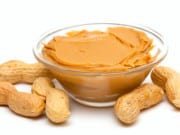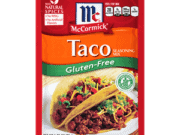While it is recommended that people who suspect they have celiac disease get tested before adopting a gluten-free diet, some people opt to go gluten-free immediately. If the gluten-free diet alleviates their symptoms, some people choose to then go get tested. What many do not realize is that gluten must be present in one’s diet in order for the celiac disease blood tests to accurately reflect the disease activity. As a result, doctors will request that persons already adhering to a gluten-free diet undergo a “gluten challenge.”
Currently, the typical gluten challenge consists of consuming more than 10 grams of gluten per day for up to eight weeks. This is equivalent to about two servings of gluten, or four slices of bread, per day - an amount that is often not well-tolerated among patients as it produces an unwelcome return of symptoms. As a result, many patients are opposed to this diagnostic method.
Now, researchers at Beth Israel Deaconess Medical Center in Boston are suggesting that the gluten challenge may be able to be performed both for a shorter amount of time and with a smaller amount of gluten.
Researchers studied 20 adults diagnosed with celiac disease and divided them into two groups: those who ate 3 grams of gluten (two slices of wheat bread) per day and those who ate 7.5 grams of gluten (five slices of wheat bread) per day. The results of their study showed that after only two weeks of consuming at least three grams of gluten or more, over 75 percent of people will test positive for celiac disease. Researchers also stated that while antibody levels “increased slightly but not significantly from baseline to day 14 of gluten challenge,” the antibody levels continued to rise even after the gluten challenge was completed.
This can be seen as positive news for those facing a gluten challenge. If the timeframe of the gluten challenge could be shortened, it may spare people some of the unwelcome symptoms that often accompany the diagnostic process. Researchers speculate that a shorter gluten challenge with less gluten consumption will make people more willing and able to complete the gluten challenge. As a result, the opportunity to receive an accurate diagnosis may be increased.
Further, the study also produced new information about the celiac disease process in general. Researchers observed that intestinal damage seen in celiac disease can be measured in less time than it takes for the antibody levels to become elevated after gluten exposure.
This newfound knowledge of intestinal damage occurring before the increase in antibody levels can potentially have an impact on the clinical trial development process as well. It is possible that this more rapid of a response to gluten exposure as seen in the gut may mean that future clinical trials can be conducted in a shorter time frame with fewer participants.
To learn more about this study, which was presented by the researchers of Beth Israel Deaconess Medical Center at Digestive Disease Week 2012, visit the International Journal of Gastroenterology and Hepatology.
This article was originally posted by the National Foundation for Celiac Awareness, find it here.







Nancy says
If you are new to Celiac Disease, gluten intolerance, or any other food allergy then, you want information on symptoms and treatments. I share some great links. Thanks for sharing this good article!